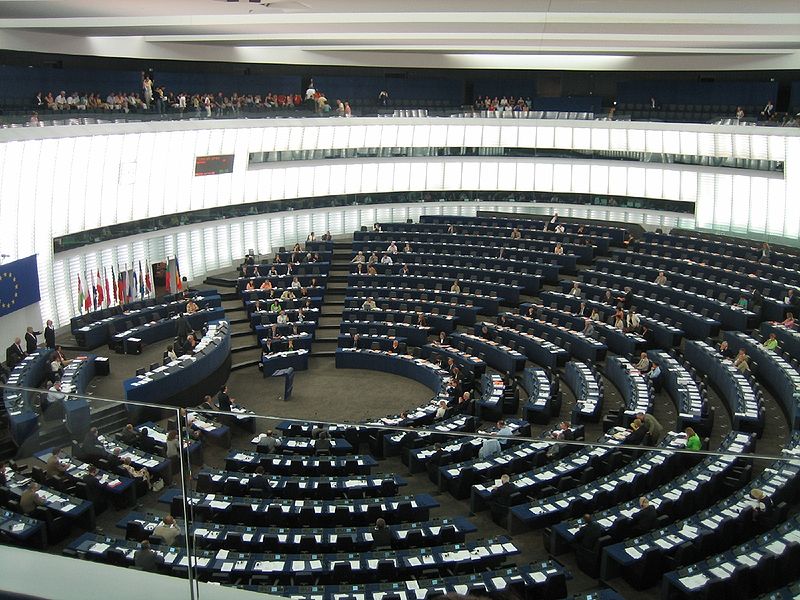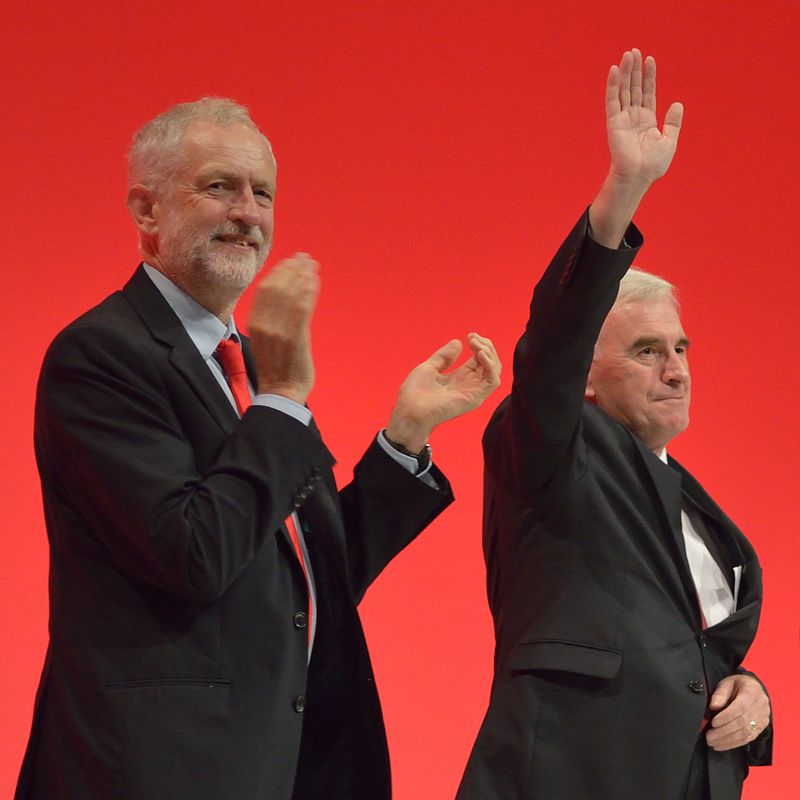Remain and conform
By Gary Lefley
The idea of ‘Remain and Reform’ is attractive. We stay in the European Union (EU), keep the bits we like, chuck the bits we don’t, and transform the EU into a socialist, or at least a social democratic, pan-European body. The problems arise when we ask ourselves two basic questions:
- a) If we stay in the EU, which bits do we reform and which bits do we keep?
- b) How do we do it? Practically, how do we reform the EU?
Without solid answers to these two questions, Remain and Reform lacks integrity and can appear as a ruse to win broader support for staying in the EU, with reform as little more than a sop. The questions are frequently side-stepped on social media, except for vague generalities, or posting links to other sites, such as Europa.eu or articles by Yanis Varoufakis. I have ploughed through these links. Europa.eu, the official website of the EU, is obscurantist and in any case, cannot be expected to offer up serious reforms of itself. Still, a patient read of its pages indicates that the institutions of the EU are not open to democratic reforms driven by its Parliament.
Varoufakis is clear on the big-business origins of the EU, its weaknesses and failings. Interestingly, he states emphatically that the EU was created to serve monopoly capitalism and cannot be reformed, (https://youtu.be/jec9rBFqcwc). He calls instead for it to be transformed, albeit using existing EU institutions and rules. When it comes to describing a practical process for this transformation, the hyperbole and rhetoric is engaging but the detail is absent. He doesn’t answer the question, how? How do we take control of the EU to actuate this transformation? What is the process? While he dismisses the possibility of reforming the EU, he nevertheless clings to the notion of using existing EU institutions and rules to expedite the transformation. In short, having dismissed a reformist approach he then embraces it, in a confused and utopian fashion. Yet, until the ‘how’ question is nailed, we are left with idealistic assumptions about the EU constitution and the possibility of reform. This does not change by swapping the word ‘reform’ for ‘transform’.
FREE MOVEMENT OF CAPITAL
I return to the two questions. Firstly, which bits do you want to reform? If you can’t identify these then it’s a nice but meaningless throwaway line.
For example, any social democrat worth his or her salt will want to abolish the free movement of capital. Free movement of capital helps to entrench the owners of capital, rather than parliament, as masters of the economy, and places the Treasury, workers and everyone in between at the mercy and whim of company boards whose only loyalty is to corporate profit. The excellent programme of policies that John McDonnell is promoting up and down the UK, under the banner “The Road to Re-building the Economy”, will be in jeopardy if, as widely predicted, there is a mass flight of capital out of the country in response to the election of a Corbyn-led Labour government. For these policies to have any chance of succeeding it will be necessary to control the movement of capital. We should remind ourselves that McDonnell’s economic programme is social democratic and nothing like as radical as the former Clause 4 of the Labour Party’s constitution, removed during Blair’s leadership, which called for the public ownership of the means of production, distribution and exchange.
So, to question b) How do we reform the EU to abolish, as an example, the free movement of capital?
The free movement of capital is enshrined in several EU Treaties, including Rome, Lisbon and the Single European Act. Those treaties can only be rescinded or amended with the unanimous ratification of all 28 member states. I’m all ears if someone can explain to me how that might be achieved. But given that pro-capitalist parties of one shade or another – mostly explicitly right wing – are in government across EU states, the realpolitik suggests that simply is not going to happen.
EU IS REFORM-PROOF
Some look to the EU Parliament as their hope for a programme of reform. Unfortunately, the result of the recent EU parliamentary elections saw it shift even further to the right, with a core of neo-fascist parties represented and conservative parties making concessions to the far right. But in a sense that isn’t the issue. The real problem is that the EU Parliament is not empowered to introduce legislation. Legislation can only be introduced by the unelected EU Commission. So even in the extremely unlikely event of the vast majority of MEPs being socialists, they could not abolish the free movement of capital.
In short, significant reforms to EU policy require the reform of its constitution, and that requires unanimous ratification. The EU constitution, embodied in its treaties, has been constructed in such a way as to make significant reform all but impossible. As a consequence, Brussels is effectively more accountable to the 20,000 corporate lobbyists based there than it is to national governments or its own parliament. This reflects the underlying genesis of the Common Market/EU. As Varoufakis stated, it was conceived in the image of monopoly capital. It’s principal objective was to create a set of institutions that could promote the interests of capital without accountability to, and interference by, elected parliaments. It has been hugely successful in this, to the point where the EU leadership can now dictate to national governments, as it has done with Cyprus, Ireland, Italy, Spain and, most notably, Greece.
We have to face up to the practical realities of how we move from where we are to where we want to be. Socialists want another Europe. As a starting point, that means: genuinely democratic and accountable institutions; progressive social policies; an anti-racist approach to immigration; a foreign policy based on peaceful cooperation, non-interference and fair trade; an economic strategy that breaks with neoliberalism, austerity and the upward transference of wealth. Given the EU’s purpose and constitutional obduracy, the chances of achieving these preliminary social democratic measures through a reformed EU are negligible.
Another Europe, and indeed another world, is possible. But that new Europe requires us to think outside the box - a revolutionary approach if you wish - to the existing political and economic institutions of free-market capitalism. It requires new alliances and relationships of socialist and social democratic parties with people’s movements. These are precisely the relationships that Jeremy Corbyn has been cultivating at conferences across the continent. Our vision of another UK, another Europe and another world is dependent on building these relationships with other progressive parties, movements and states within and beyond the EU, starting with the 44 countries of Europe and the 7 trans-continental Euro-Asian states. But there is also potential for political and economic treaties beyond Europe, with for example, the 53 nations of the Commonwealth and the 120 members of the Non-Aligned Movement.
EU NOT FOR CHANGING
The reality is that developing a positive relationship with the EU from the position of an independent social democratic UK is more achievable than chasing the improbable fantasy of reforming an immutable, resistant EU bureaucracy. The other reality is that remaining in the EU really means accepting it as it is because there is little we can do to transform it from within. This effectively means conforming indefinitely to structures, policies and practices that have been designed to serve the interests of the few at the expense of the many. Remaining means accepting the following features of the EU:
- unrestricted movement of capital
- legally binding commitment to a free market, prohibiting publicly owned, state-subsidised monopolies
- ban on independent trade deals with states outside the EU
- continuing, legally enforced erosion of free-collective bargaining (judged to be in breach of the EU’s ‘right to conduct business’)
- racist immigration policy
- political and economic interference in the internal affairs of member states
- trade policy that is designed to maintain African states in neo-colonial servitude
- foreign policy that embraces regime-change imperialism
- rapid €20 billion build-up of the EU Armed Forces
- legal system that subordinates UK law to the EU Court of Justice
- constitution described by Tony Benn as “explicitly capitalist” that cedes UK democratic sovereignty to an unelected, unaccountable Brussels elite
- inevitable mobilisation of EU institutions against a Labour Government committed to an anti-capitalist transformative social-economic programme
In short, rather than answer Question a) “If we stay in the EU, which bits do we reform and which bits do we keep?” the centrists have quietly ignored it because they know there is no answer to Question b) “Practically, how do we reform the EU?”
The Blairites and Watson’s faction, Change UK, the LibDems, and a majority of Tory MPs - in harmony with the CBI, Chamber of Commerce, Institute of Directors, Bank of England, the Treasury, all the high street banks, and most of the establishment media, including the Times and Financial Times - all wish to remain in the EU, not in spite of the above but because of it. They embrace the EU’s institutionalised neoliberalism. They are perfectly aware that Remain and Reform really means Remain and Conform. Indeed, they are banking on it to defeat Corbyn, trash Labour’s manifesto and restore the Labour Party as a compliant option for the establishment, and for monopoly capital.

The European Parliament, Strasbourg

The programme of Jeremy Corbyn and John McDonnell would be threatened by the EU






